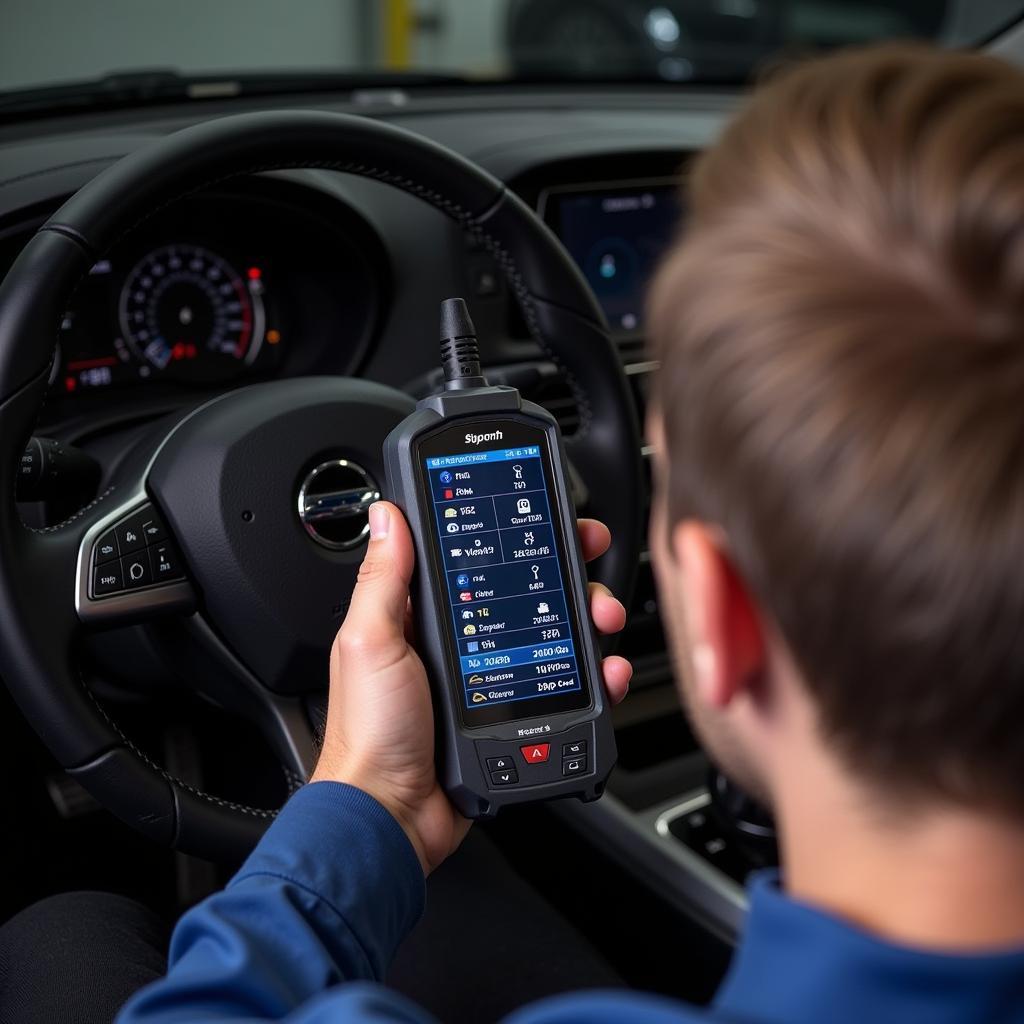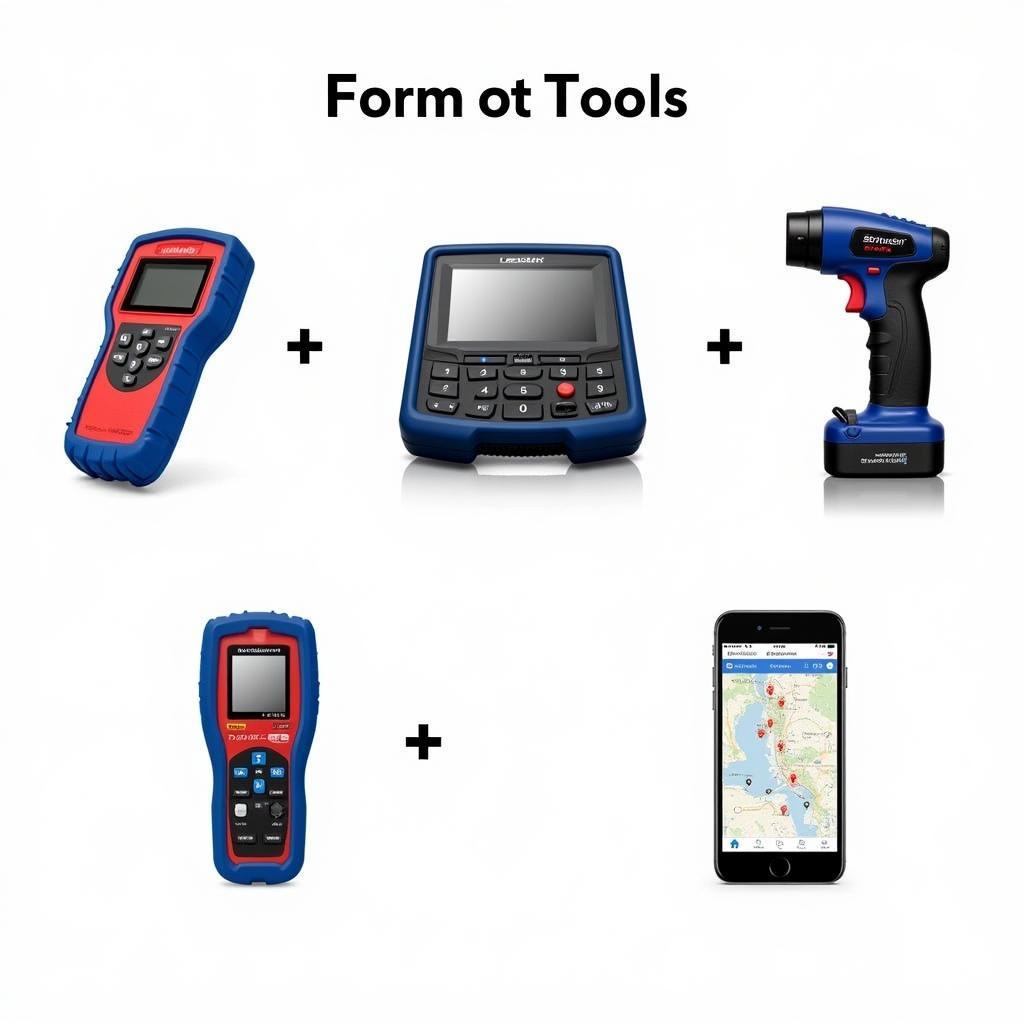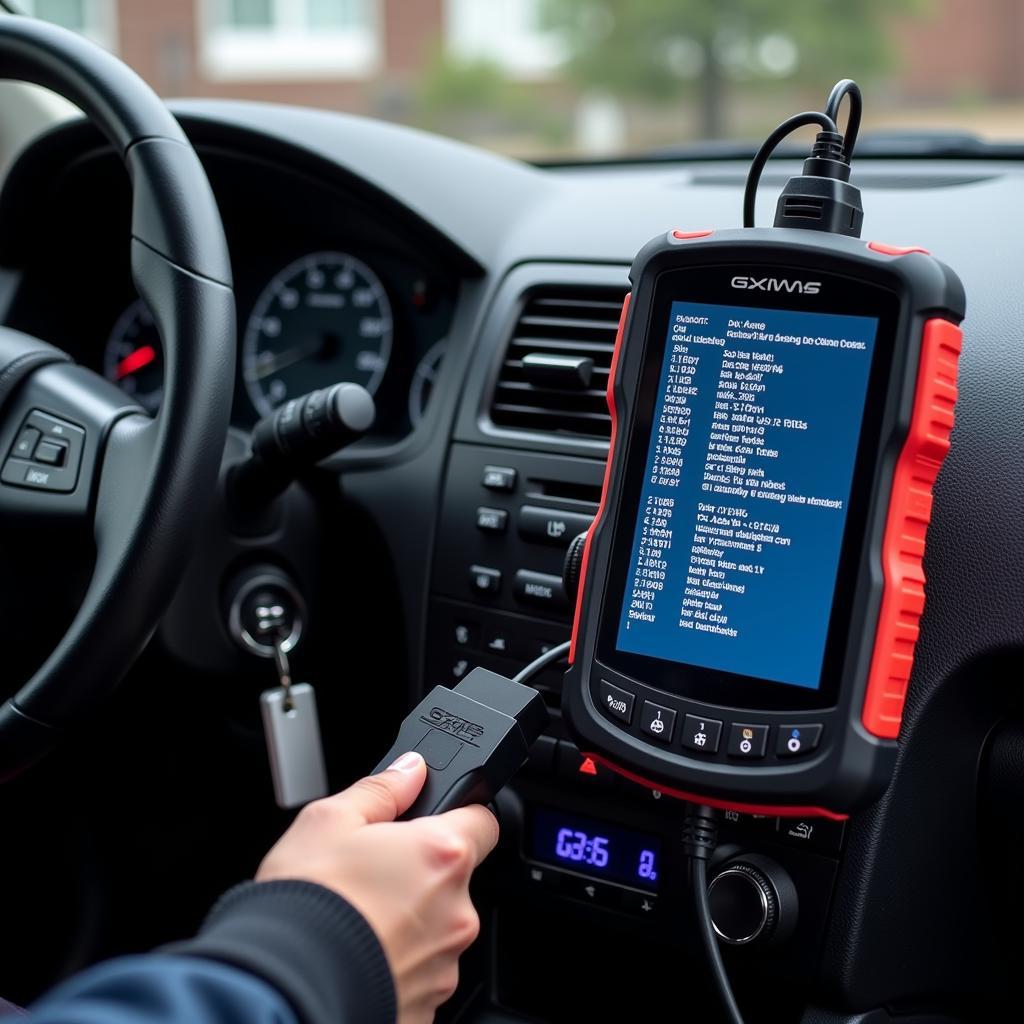Choosing the right scan tool for your needs can be a daunting task, especially with so many options available. If you’re working with a budget of around $1000, you’re in a great spot to find a best scan tool under 1000 that offers advanced features and reliable performance. Whether you’re a seasoned mechanic or a car enthusiast looking for deeper insights into your vehicle’s health, this guide will help you navigate the world of scan tools and find the perfect one for your needs.
 Mechanic using a scan tool to diagnose a car
Mechanic using a scan tool to diagnose a car
Understanding Your Needs
Before diving into the specifics of various scan tools, it’s essential to define your needs. Ask yourself:
- What type of vehicles will I be working on? Some scan tools specialize in specific makes or models, while others are more universal.
- What level of diagnostic depth do I require? Do you need basic code reading capabilities, or are you looking for advanced features like bi-directional controls and live data streaming?
- How important is user-friendliness? Consider the tool’s interface, software, and ease of use, especially if you’re a beginner.
Key Features to Consider in a $1000 Scan Tool
 Different types of scan tools on a workbench.
Different types of scan tools on a workbench.
Once you have a clear understanding of your needs, consider these key features when making your decision:
1. Vehicle Coverage
- Make and Model Compatibility: Ensure the scan tool supports the makes and models you’ll be working on, both domestic and import.
- System Coverage: Look for tools that can access and diagnose a wide range of vehicle systems, including engine, transmission, ABS, airbags, and more.
2. Functionality
- Code Reading and Clearing: The ability to read and clear fault codes is a fundamental feature of any scan tool.
- Live Data Streaming: This allows you to view real-time sensor data, providing valuable insights into how your vehicle is performing.
- Bi-Directional Controls: Advanced tools offer bi-directional controls, enabling you to activate components like solenoids, relays, and actuators for more thorough testing.
3. User Experience
- Display and Interface: A clear, easy-to-read display and intuitive interface are crucial for efficient diagnosis and navigation.
- Software and Updates: Choose a scan tool with regular software updates to ensure compatibility with the latest vehicle models and technologies.
- Data Logging and Reporting: The ability to log and save data, as well as generate reports, can be incredibly useful for tracking issues over time or sharing information with others.
Expert Insights
“Investing in a quality scan tool is one of the smartest decisions a car owner or mechanic can make,” says John Smith, a certified master mechanic with over 20 years of experience. “A scan tool can save you time, money, and frustration by helping you quickly and accurately diagnose car problems.”
Choosing the Right Scan Tool: Beyond the Basics
While the features mentioned above are essential, other factors can influence your decision:
- Brand Reputation: Opt for reputable brands known for their quality, reliability, and customer support.
- Durability and Build Quality: Choose a well-built tool that can withstand the rigors of a workshop environment.
- Additional Features: Consider extra features like wireless connectivity, printable reports, and manufacturer-specific diagnostics.
Conclusion
Finding the best scan tools for mercedes benz or any other car within a $1000 budget is entirely achievable. By understanding your specific needs, researching different models, and considering the key features outlined in this guide, you can make an informed decision and invest in a scan tool that will serve you well for years to come. Need assistance finding the perfect scan tool? Contact ScanToolUS at +1 (641) 206-8880 or visit our office at 1615 S Laramie Ave, Cicero, IL 60804, USA. Our team of experts is always ready to help!

